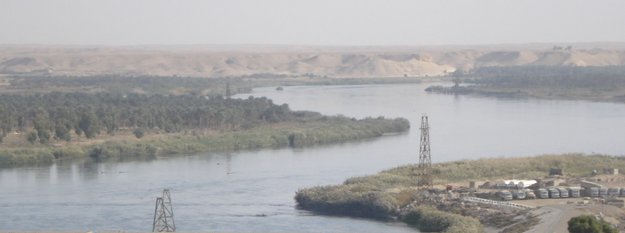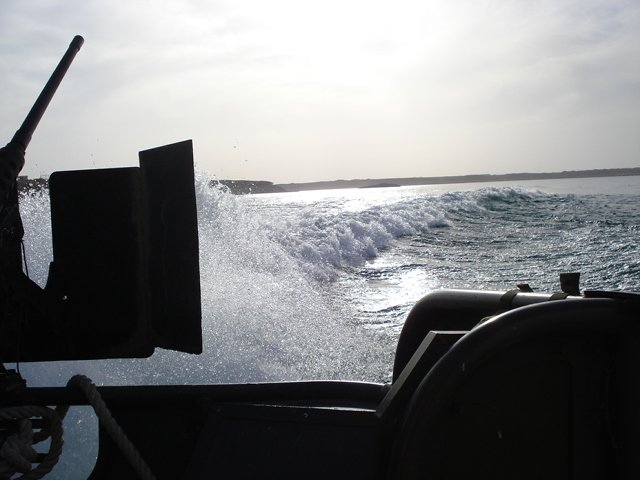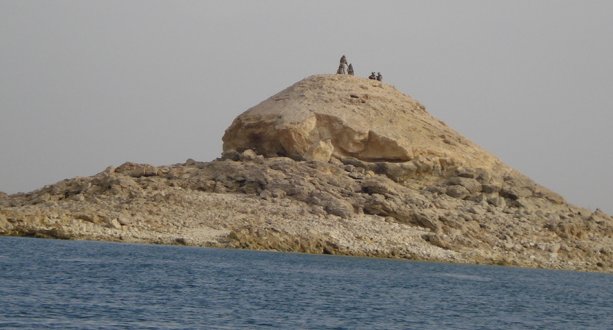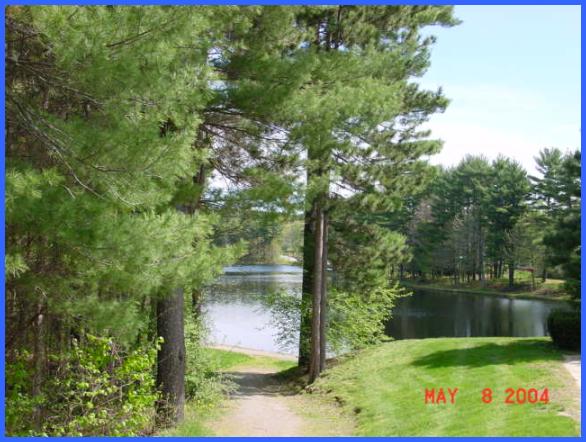This post draws on and fleshes out some my earlier more random thoughts. It represents only my personal opinion. Call it my blog editorial.
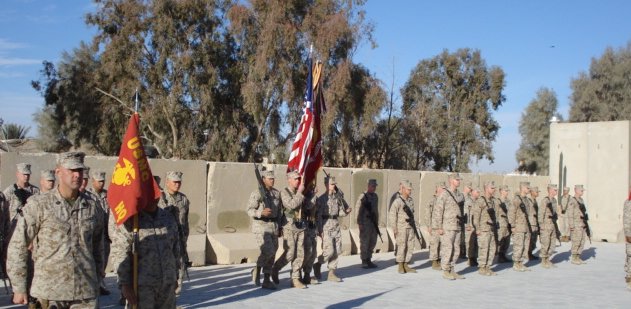
Above is the TOA (Transfer of Authority) ceremony, where Regimental Combat Team 2 (RCT2) transfered responsibility to RCT5.
We are on the verge of achieving the impossible: defeating an Islamic terrorist movement in the heart of the Middle East on a battlefield of their choosing. Tens of thousands of Takfiri streamed into Iraq for the opportunity to become martyrs and coalition and Iraqi forces obliged them. Al Qaeda in Iraq (AQI) has been essentially annihilated in Al Anbar, the center of what they boldly declared as their new caliphate eighteen months ago. Tribal leaders who once fought us are now on our side and former insurgents are giving up and reconciling.
It may take a while for the magnitude of this to sink in. I can walk around in the same places where heavily armed American & Iraqi forces could not safely walk only months ago. Here the debate has shifted to providing everyday services such as sewer, water and electricity. Marketplaces where insurgents dumped headless bodies last year are now crowded with shoppers. Children are returning to school instead of being abused by terrorists and coerced into deadly activities. What a difference a year makes!
Sometimes you just have to win. Some conflicts just need to run their courses and some bad guys just need killing. Nazi ideology was not discredited UNTIL it was defeated on the battlefield. No amount of peaceful persuasion or appeasement worked. People thought communism was a viable alternative to the free market UNTIL it ignominiously collapsed. Massive economic evidence and even the presence of a very large and deadly wall running down the middle of Berlin did not convince the believers to abandon their failed ideology. Earlier forms of terrorism from the Barbary Pirates to the Bader-Meinhof didn’t go away until they were defeated. We tried appeasement in the 1930s and we tried ignorance in the 1990s. These things did not work.
Ideology is weakened AFTER its defeat. That is often the direction of causality. In our recent case, more people are drawn to be takfiri when being takfiri is easier and more beneficial. People are attracted to success and avoid losers.
The war against terrorism is not won since a final victory is not possible. This is one of those “eternal vigilance” propositions. Our nation’s first foray into foreign policy involved fighting the Barbary Pirates; whose behavior – adjusted for the technologies of the times – closely resembled those of today’s territorially based terrorists. That was in 1804 and obviously the job is never done. But terrorism can be contained. As with the Nazis and communists, their ideology is compromised by setbacks and real world defeats.
Media coverage of events in Iraq has moved inversely to our success here and so many American’s perception of Iraq is based on events of 2006. Journalists like to cover carnage and many of them absent mindedly wander away when the mundane work of reconstruction takes over. Nevertheless, my brave colleagues’ efforts will be supplying a victory in Iraq and even the media and the chattering classes will soon come to recognize it. Let’s nor squander it.

